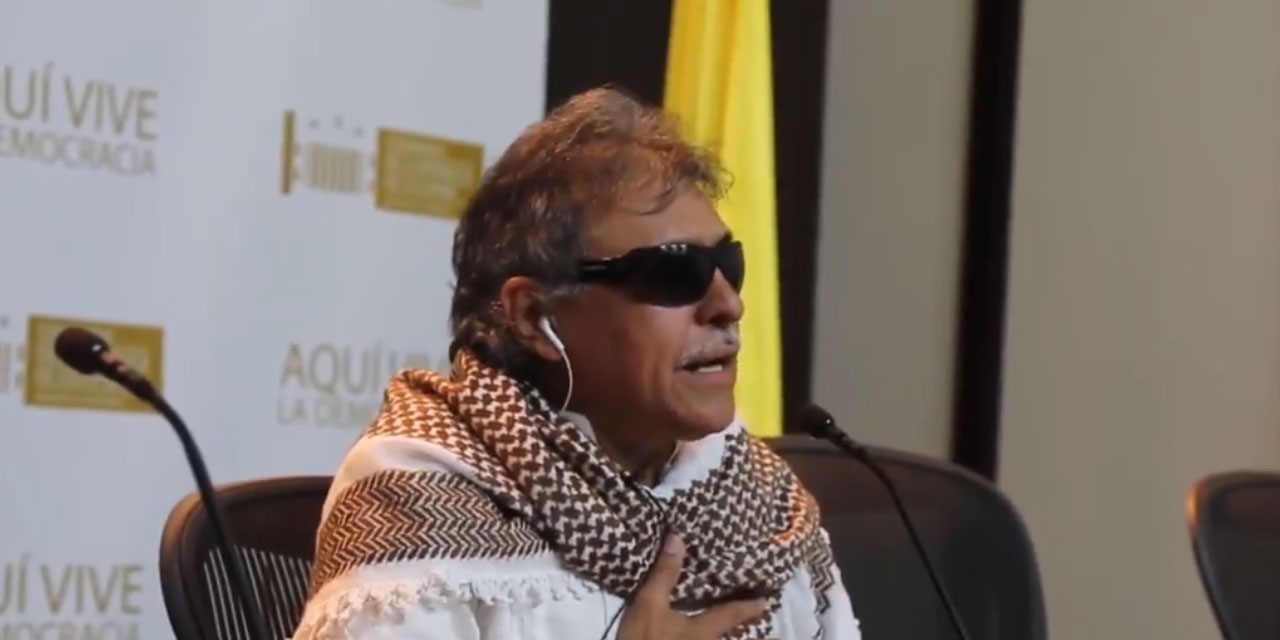A son of missing FARC Congressman “Jesus Santrich” said Monday that he does not rule out his father was kidnapped and killed.
Santrich’s son made the claims in an anonymous interview with public television network Canal Uno.
“It is possible he has been forcibly disappeared,” said the son, who asked to remain anonymous.
According to the son of the FARC leader, he was expecting to meet Santrich at a public event in Barranquilla on Sunday, but has not been able to have contact with his father ahead of his disappearance.
I haven’t been able to have direct contact with him in any way, because all these days have been difficult, they have been complex, this whole story has been a storm.
Son of “Jesus Santrich”
The son’s theory that his father was kidnapped and killed is the third that seeks to explain the shock disappearance of the former guerrilla leader whose release from jail was ordered by the Supreme Court just last month.
Organizers of the Sunday event that would be attended by Santrich claimed that the FARC leader fled to Venezuela after being informed of an impending assassination or kidnapping attempt in the northern city.
President Ivan Duque claimed Santrich disappeared to “evade justice” as the FARC leader is expected in court in July 9 to defend himself against a vague US drug trafficking claim.
None of the theories, however, are sustained by any evidence and Santrich’ disappearance remains a mystery.
The FARC leader disappeared between Saturday evening and Sunday morning while staying in a FARC reintegration camp some 20 miles from the Venezuelan border.
According to some media reports, the virtually blind Santrich had been left without security for three hours, while others report he escaped through a window of the cabin he was staying in.
When his security detail entered the room where the FARC leader was staying they found a note saying that Santrich would be staying the night with one of his sons in Valledupar.
The disappearance triggered the latest of a series of crisis in the fragile peace process that began in 2016, but has been hindered by fierce opposition from the far-right, deadly violence against demobilized guerrillas, community leaders and human rights defenders and state failures to implement the deal.


